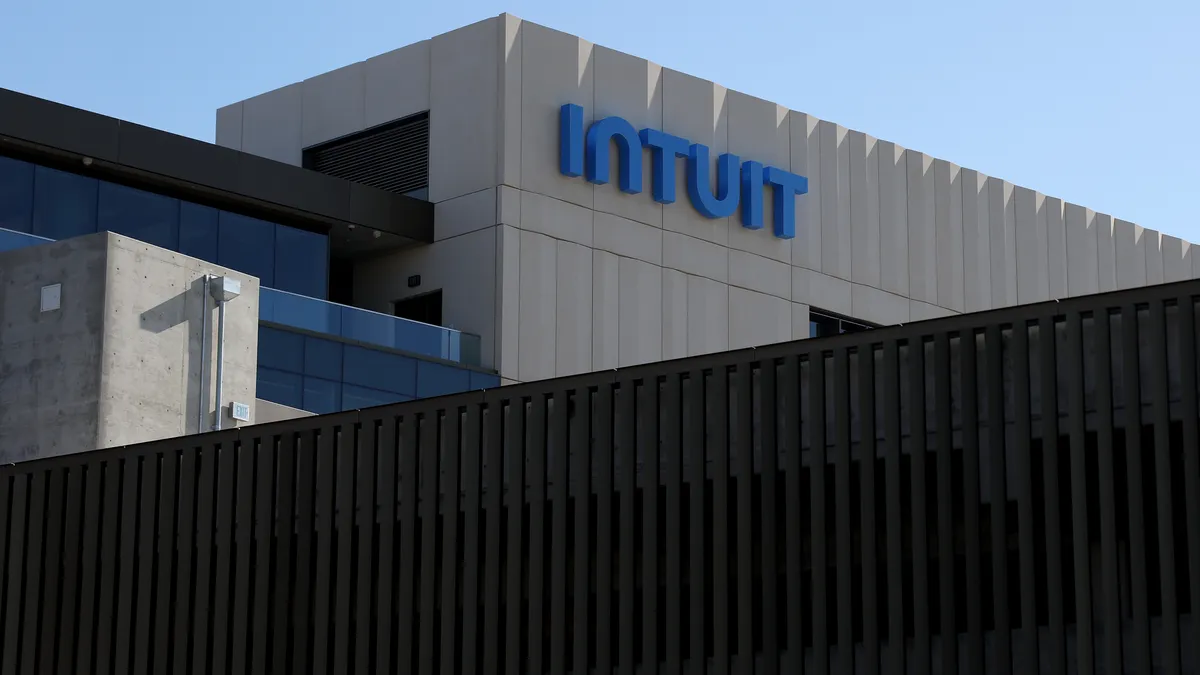Tax preparation and accounting software company Intuit has rolled out a series of new AI upgrades for its flagship QuickBooks product geared at helping business owners spend more time on higher-value tasks.
“The big opportunity is ‘how do you get rid of that minutiae? How do you get some of that stuff to be just done for [business owners] so they can get back into speaking with customers?” said Dave Talach, senior vice president of product for Intuit QuickBooks, which has 10 million customers.
The upgrades include new capabilities for its generative AI-powered financial tool Intuit Assist, which will be embedded into the software. These include the ability to turn conversations and documents into invoices or bills; the capability to detect past due invoices and generate automated personalized invoice reminders; and the ability to categorize expenses.
The news comes as Intuit leans into AI agents to streamline the work of business leaders, CFOs and other executives. In comments Thursday during the company’s earnings call for fiscal Q1 ended Oct. 31, CEO Sasan Goodarzi said the company was aiming for a longer-term payoff on its AI investments, acknowledging that its AI agents could do the work of a CFO, CMO, or a sales officer of a midsize business.
“We believe that these [AI agents] are going to be contributors of growth into the future. And of course, our desire is accelerated growth,” he said, according to a transcript of the call, noting that AI monetization isn’t something the company has baked into its expectations for the year.
Separately, Talach told CFO Dive that Intuit Assist’s AI-driven capabilities to analyze unstructured data could drive meaningful efficiencies for users.
“Using any phone, you can take pictures of handwritten notes, you can upload emails, forward emails, you can upload PDFs…any deck of unstructured data, and it will create a draft invoice, a draft estimate, it will do expenses or receipts,” Talach said. “We have Intuit Assist now making much more accurate and explainable, transparent recommendations,” on expense categorizations, effectively automating accounts payable and accounts receivable, he said.
While accountants are optimistic about AI’s potential to boost productivity, many have also cited concerns about its downsides, including flawed data and undetected bias, a 2023 survey from Moss Adams found. The survey found that most flagged at least one potential downside from rapid adoption of AI, including poor work quality, flawed data and undetected bias. AI adoption in CFO teams also has the potential to shrink finance teams, according to a report released earlier this month by FP&A firm Datarails, CFO Dive reported.
Most accountants are concerned about AI’s impact on data privacy and security, Intuit found in a survey of its own this year, with 31% citing this as top worries. Meanwhile, 21% pointed to accuracy, while another 21% pointed to implementation and maintenance costs, according to the survey. Despite these misgivings, 98% of accountants said they’ve used AI over the past 12 months, with data entry and processing (69%), fraud detection and prevention (51%), and real-time financial insights (47%) topping use cases.
Talach said the firm is building out AI use cases carefully, gradually growing use cases as customer trust grows.
“We overestimate what can be done in the near term and underestimate what can be done in the long term,” he said. “We’ve got to be really pragmatic in the near term, to focus on very clear use cases that build trust.”
In its quarterly earnings release, Intuit reported that revenue grew 10% year-over-year to $3.3 billion, while net income was $197 million, down from $241 million a year ago, the company said. On Tuesday, Intuit’s stock price dropped after The Washington Post reported that leaders of President-elect Donald Trump’s Department of Government Efficiency discussed creating a mobile app for Americans to file their taxes free with the Internal Revenue Service.
Intuit is among a number of the big tech companies racing to incorporate more AI features such as the co-called AI agents, which are capable of learning and executing certain tasks autonomously, into their business offerings. For example, software giant Microsoft is expanding its collection of tools for automating business functions such as the office of the CFO with the launch of AI agents, CFO Dive previously reported. The company is introducing 10 new autonomous agents, including two designed for finance professionals, in its Microsoft Dynamics 365 enterprise resource planning platform.










